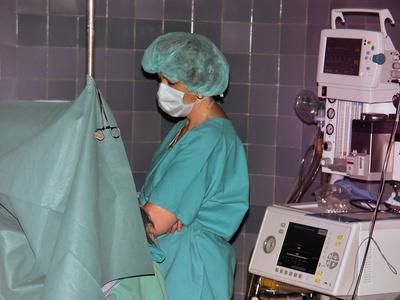In a cesarean section, or C-section, doctors surgically remove the baby from the mother’s uterus rather than delivering vaginally. Most doctors view it as a safe procedure, but there are risks and side effects associated with it. You should learn what’s normal and what might require a trip to the hospital.
Infection
Doctors create an incision to deliver your baby by C-section. This incision can take up to six weeks to heal. It’s also prone to infections. Contact your doctor if you notice pus around the incision, or if you have a sudden fever.
Bowel or Bladder Problems
It’s rare, but the internal scarring from your incision could cause problems with your bladder or bowels. You may not even notice the problem until years after you’ve had your baby.
Difficulty Breastfeeding and Bonding With Baby
The long healing time is painful and could make it difficult for you to breastfeed and bond with your baby. The position of the scar sometimes makes it painful to hold your baby. Lifting the baby could also add stress to the incision, causing it to take longer to heal. Try working with a lactation consultant to find positions that you can hold your baby to breastfeed and bond.
Increased Risk of Disease in Baby
California Watch reports that there is some indication that a C-section birth increases a baby’s chances of developing asthma, allergies or Type 1 diabetes, probably because it is not exposed to the good bacteria in the mother’s vagina.
Placental Complications in Future Pregnancies
A C-section creates a scar in your uterus, which can disrupt future pregnancies. This stems from unusual placement of the placenta, such as in placenta previa, where the placenta covers the cervix, making it impossible for a vaginal delivery.
Disappointment or Depression
When you were waiting for your baby to arrive, you probably created an ideal view of how it would happen. Most likely, that did not include a C-section. Some women are disappointed that they couldn’t deliver vaginally. The disappointment can turn into postpartum depression.





